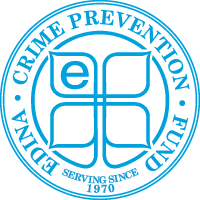How Identity Thieves Steal Your Info
They steal wallets and purses containing you identification and credit cards.
They steal your mail that may include bank statements or other personal financial information.
They rummage through your trash, or the trash at a business looking for personal data.
They find personal information inside your home.
They use personal information you share over the Internet.
They perform telephone, mail, or Internet scams requesting you provide personal information to them.
They steal files from businesses that keep records of your personal information.
The Edina Police Department has produced a four-page Technical Brief on preventing identity theft. The brief also outlines specific actions a resident should take if his or her checks, credit cards, driver’s license, keys, purse, Social Security card or wallet has been stolen.
How Identity Thieves Use Your Info
They may call your credit card issuer and pretend to be you.
They may request that the mailing address on your account be changed in order to delay your receipt of the charges to the account.
They may open a brand new credit account in your name and make several charges to the account. Often in this circumstance, you may never receive a bill until the collectors start calling.
They establish phone or wireless service in your name.
They open a bank account in your name and write bad checks on the account.
They create checks with your actual account number and write them for large amounts.
They take loans for large items, such as cars, in your name.
They give your name to police officers and at times are actually booked under your name.
They don’t show up for court and a warrant is later issued for your name.
Minimize Your Risk of Becoming a Victim
Place passwords on your credit card, bank and phone accounts.
Secure personal information in your home. If possible, use a safety deposit box at your bank to store personal information.
Shred all documents that contain personal information before putting them in the trash.
Do not leave your purse, wallet, or anything else containing personal information unsecured. Do not set them down in public areas and never leave them in an unoccupied vehicle.
Place bills you are sending out in a secure postal collection box rather than in your mailbox at home.
Collect your personal mail promptly. Stop your mail if you are going to be out of town.
Consider paying your bills online.
Do not distribute personal information over the Internet unless you are confident that the Internet site is secure.
Never give out personal information over the phone. Request a number from any agency requesting your information, verify the number, and then call them back.
Find out how your personal information will be shared before giving it to anyone.
Monitor your bank statements closely.
Opt out of, or remove your name from marketing or promotional lists maintained by credit bureaus, direct marketers, and other organizations with which you have a relationship. Call 1-888-5OPTOUT (1-888-567-8688) for more information.
Ask about information security procedures in your workplace.
When asked for your social security number ask why do you need it, how it will be used, and if you are required to supply it?
Do not print your social security number, phone number or middle name on personal checks.
What To Do If You Become a Victim
Contact the fraud departments of each of the three major credit bureaus.
Equifax
P.O. Box 105
Atlanta, GA 30348
(800)685-1111
Experian
P.O. Box 2104
Allen, TX 75013
(888)397-3742
Trans Union
P.O. Box 390
Springfield, PA 19064
(800)916-8800
Close the accounts that you know or believe have been tampered with or opened fraudulently.
Ask the each bank or company to send you their fraud dispute forms or ID theft affidavit.
File a police report with your local police department.
Provide documentation before filing the report, including debt collection letters, credit reports, theft affidavits, bank statements, and any other evidence of fraudulent activity.
If your checks have been stolen, notify the following check database companies:
TeleCheck—(800)710-9898
SCAN—(800)262-7771
Other Services and Links
Download the City of Edina’s Identity Theft Resource Guide.
To find information regarding Minnesota’s Security Freeze Law go to: http://www.consumersunion.org/pdf/security/securityMN.pdf
For information on how to dispute credit reporting errors and fair credit reporting go to: www.ftc.gov/idtheft
For information on which agency has jurisdiction over your banking institution go to: www.ffiec.gov/enforcement.htm
For information regarding mail theft go to: www.usps.gov/websites/depart/inspect
For information regarding local phone fraud contact your service provider.
For information regarding cellular phone fraud contact your service provider or go to: www.fcc.gov
For information regarding the fraudulent use of your social security number go to: www.ssa.gov. You may also call the Social Security Administration at (800)269-0271.
For information about tax fraud go to: http://www.irs.gov/compliance/enforcement
If your driver’s license is stolen report it to the police and contact: Driver and Vehicle Services—(651)297-3298 www.dps.state.mn.us/dvs
For more general information regarding identity theft and how to avoid becoming a victim go to: www.ftc.gov
